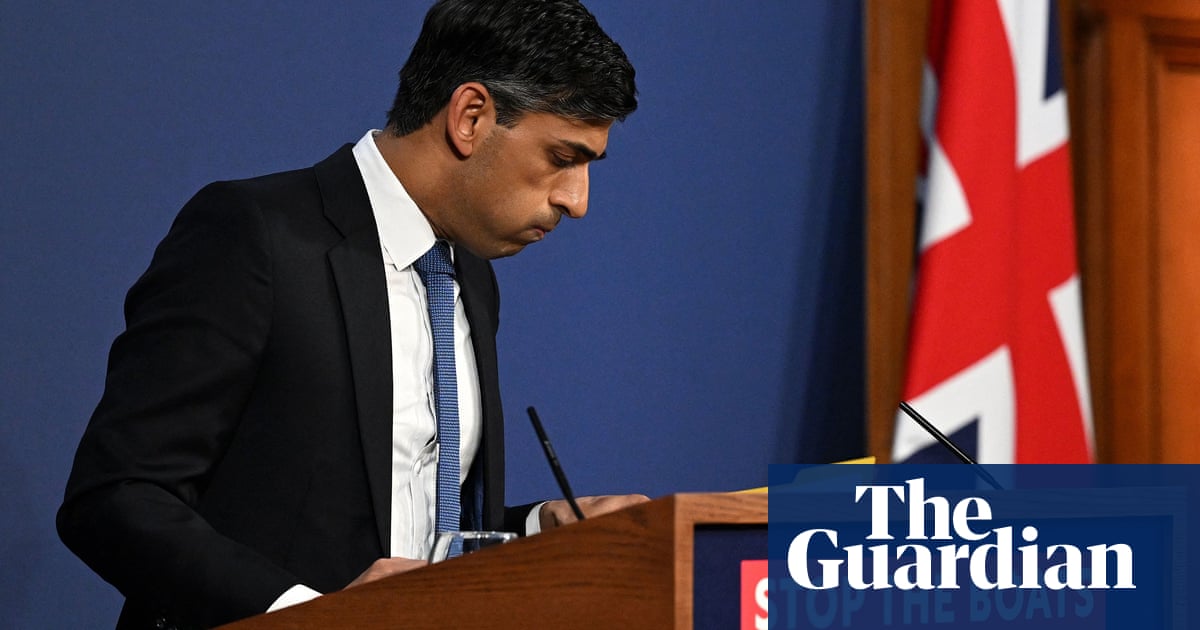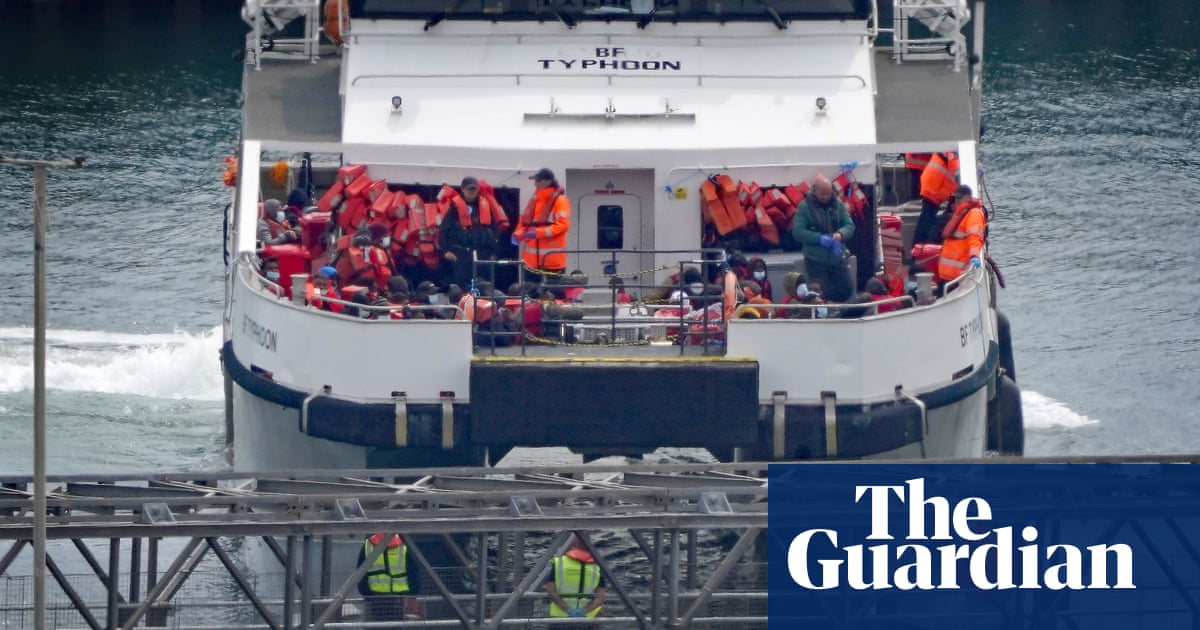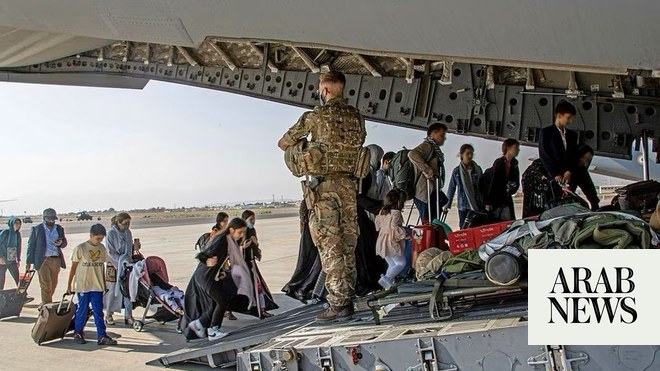
Refugees living in northern France say Brexit has made it easier for them to reach the UK in small boats, as it emerged that record numbers of people crossed the Channel in one day.
Despite the worsening weather conditions and the UK government’s attempts to deter them, 1,185 people made the crossing on Thursday, according to the Home Office.
Refugees who have fled a variety of conflict zones including Sudan, Afghanistan, Iran, Iraq and Eritrea told the Guardian they believed the fact the UK was no longer part of the EU made it more appealing to risk the dangerous crossings because they could no longer be sent back to other European countries under EU legislation.
In October 2020 Boris Johnson said Brexit would enable Britain to take back “full control of our money, our borders and our laws”.
Nevertheless, while the overall number of people fleeing conflict and claiming asylum in the UK has fallen to 31,115 in the last 12 months, the number crossing from France to the UK in small boats has risen sharply since the UK parted company from the EU.
Previously, when the UK was part of the EU, under a mechanism known as Dublin the UK could ask other EU countries to take back people they could prove had passed through safe European countries before reaching the UK.
The UK could make “take charge” requests and officials were often able to prove that asylum seekers had passed through other countries thanks to the Eurodac fingerprint database. But since Brexit the UK no longer has access to that database, so it is harder to prove definitively which other European countries small boat arrivals to the UK have previously passed through.
The UK has not so far struck any bilateral agreements with other EU countries to enable it to replicate the Dublin arrangement. Instead officials have labelled many claims where they suspect people have passed through other European countries before reaching the UK as “inadmissible”.
In practice this means many asylum seekers are languishing in the system for extended periods but are not being sent to other countries.
Even before the UK left the EU, only a few hundred people were sent to other European countries in 2020.
The Guardian recently interviewed dozens of asylum seekers in northern France. Many were malnourished, bedraggled and in a desperate state and had fled a variety of conflict zones. Some had travelled through Libya where they had been detained and trafficked.
One 19-year-old man from Sudan who is currently in Calais said: “We believe we will not be safe unless we can reach the UK. Here the French police beat us and evict us every day from the places where we are sleeping outside. It brings back bad memories from Libya where I was locked up and beaten many times by traffickers. Because of Brexit I believe that once I reach the UK I will be safe at last. No Dublin, no fingerprints any more.”
He said he had no money to pay smugglers and would try to find a way to cross with a small group of friends in an abandoned kayak. “Every night we go to the beach to look for small boats that have been abandoned and we will try to cross that way.”
One Kurdish man who gave his name as Navid, and is sleeping in a tent in Dunkirk, said his family had made an arrangement with smugglers to pay for him to cross in a small boat.
“Everyone here is saying to me that because of Brexit it is much easier to find safety in the UK,” he said. “I hope I will manage to cross without losing my life and find a safe future in the UK.”
A Home Office spokesperson said:“The British public have had enough of seeing people die in the Channel while ruthless criminal gangs profit from their misery and our new plan for immigration will fix the broken system which encourages migrants to make this lethal journey. People should claim asylum in the first safe country they reach – rather than making dangerous journeys to the UK. That is why we will have rules in place to make asylum claims inadmissible where people have travelled through or have a connection to safe countries.
“There is a global and European migration crisis and countries have a moral responsibility to tackle the issue of illegal migration. We expect our international partners to engage with us to stop people making perilous crossings.”












